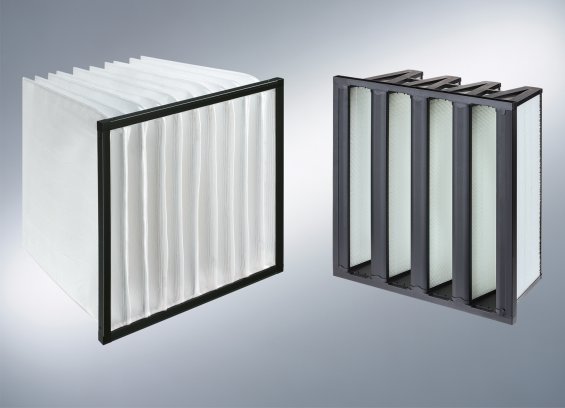
Rockline releases 10th annual Sustainability Report
Only 10% of costs are in the purchase of a filter, with the rest being maintenance and disposal costs, company advises.

6th February 2023
Innovation in Textiles
|
Luwigsburg, Germany
Mann+Hummel will be presenting solutions for cleaner air in buildings or cleanrooms at the ISHexhibition in Frankfurt from March 13-17, when one focus will be on energy-efficient nonwoven air filters with an A+ energy rating, which enable building operators to reduce energy costs. The company says it offers more A+ rated air filters in the Eurovent filter classes than any other supplier on the market.
New to the range is the Aircube Eco S 4V, the world’s first synthetic media compact filter to achieve an A+ rating. It is best-in-class for energy efficiency according to Eurovent 4/21. With an installation depth of 292mm, its energy consumption is only 767 kWh per year. It also achieves up to 70% longer service life than comparable filters on the market. This allows building operators to not only reduce their energy and maintenance costs, but also reduce their CO2 footprint by approxixmately 10kg per year compared to the Aircube Eco 4V predecessor model from the range.
The A+ rated Airpocket Eco Plus is another new product that leads the market in energy efficiency for bag filters in the ePM1 filter classes. The ePM1 65% with standard dimensions of 592 x 592 x 635mm and 10 pockets has an energy consumption of 734 kWh per year. Compared to its predecessor, energy consumption has been reduced by approximately 13% through the use of synthetic media with nanofibre technology.
An HVAC system is responsible for about 50% of a building’s energy costs and air filters have a significant share, accounting for around 8% of the building’s electricity costs. Looking at the lifecycle cost of an air filter, about 80% is energy and only 10% is the purchase cost of the filter, with the rest being maintenance and disposal costs. The bottom line is that choosing energy-efficient air filters offers building owners significant potential to reduce energy costs. Depending on what the building owner is currently using, these savings can be many times greater than the additional price of a more efficient air filter. The change can be made without affecting air quality and without retrofitting or modifying the system.

Business intelligence for the fibre, textiles and apparel industries: technologies, innovations, markets, investments, trade policy, sourcing, strategy...
Find out more